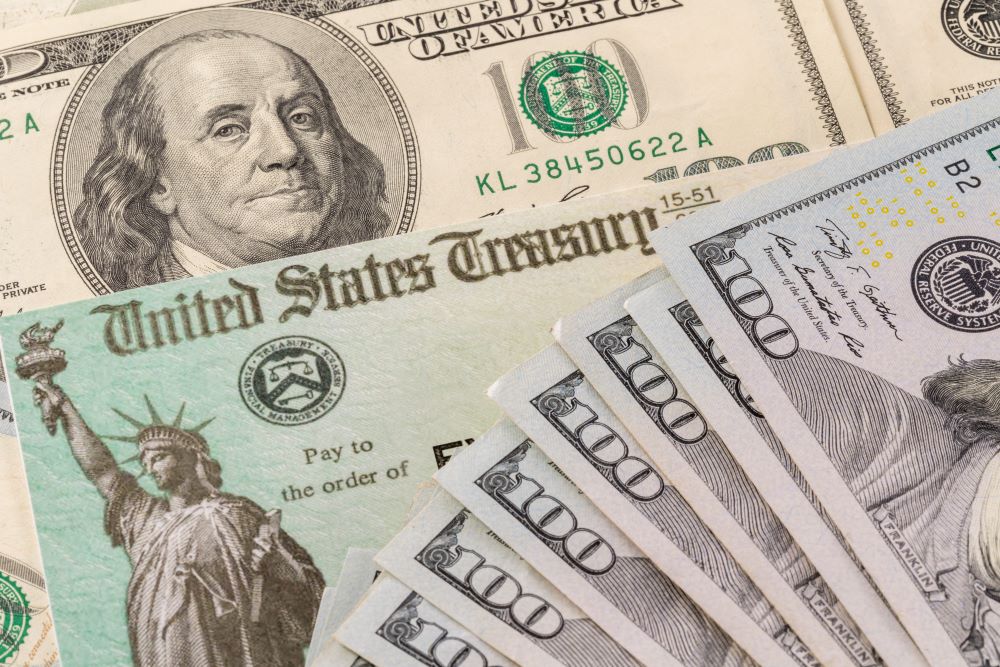Americans are getting another round of stimulus checks for up to $600 per person, depending on income, with another $1,400 per person payments expected soon. While these checks are coming at a time of intense need for many, you may be wondering how you can get the best use out of your stimulus payments.
Consider how to use your stimulus payments to set yourself up for financial success. Here are six of the best ways to use your stimulus check.
1. Pay Off Some Bills
Struggling to keep up with your bills? You can use your stimulus to help ensure you’re up to date with all your payments. Avoiding late payments should be a priority, as they can can result in late fees, service shutoffs and negatively impact your credit scores. Late payments can land on your credit report and drag down your credit score for seven years.
You’ll likely want to prioritize the bills that are past due or coming due soon, as those are the ones that are approaching the point where they can affect your credit. If you’re not in danger of making late payments, you can put your stimulus money toward any larger bill that eats up the biggest chunk of your budget every month.
Remember, a late payment won’t be reported to the credit bureaus until it’s at least 30 days past due, and the damage gets worse at 60 days and 90 days, respectively. Just because a bill is already past due doesn’t mean you shouldn’t work to pay it off as quickly as possible.
2. Pay Down Debt
Whether it’s a mortgage, credit card, car loan or other type of debt, using your stimulus payment to pay off debt can reduce your obligations and save you money by shrinking the amount of interest you are paying on that debt in the long run. You can use the debt avalanche or debt snowball method when choosing where to apply your stimulus.
The debt avalanche method saves the most money on interest. This can involve putting your stimulus check toward your debt with the highest interest rate and making minimum payments on your other debts until the high interest rate debt is paid off.
The debt snowball method focuses on paying down your smallest debts first, working your way up the ladder. This won’t save you as much money in interest charges, but it can help you gain a mental boost by eliminating debts and freeing up extra cash to put toward larger debts.
3. Increase Your Emergency Savings
If nothing else, last year taught us the importance of an emergency savings fund. It’s commonly recommended to have at least three to six months’ worth of expenses socked away for emergencies such as job losses, car repairs and other unexpected calamities.
Even if that figure seems impossible, saving all or part of your stimulus can help you better prepare for the unexpected. While there are many places to put an emergency savings fund, it’s important that you can access cash quickly in case you need it.
4. Invest for the Future
Are you saving for retirement in an IRA, or putting money in a 529 for your child’s college savings? Maybe you have a personal investment fund? Investing your stimulus money can help it grow for the future and better prepare you to meet long-term financial goals. By comparison, the interest that the average savings account earns won’t even keep up with inflation.
5. Make a Strategic Purchase
If your car needs an expensive fix or you have an appliance on the fritz, now might be the time to make a purchase. You can use your stimulus payment for a big-ticket expense that might have otherwise caused you take on debt.
6. Donate to Charity
Millions of Americans are struggling financially as a result of the pandemic shutdowns. If you can spare it, consider donating part of your stimulus payment to a worthy cause such as a food bank or homeless shelter. You can deduct part of your donation on your tax return for this year, even if you claim the standard deduction.











